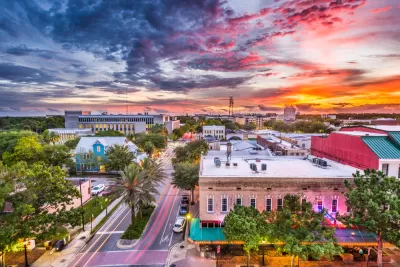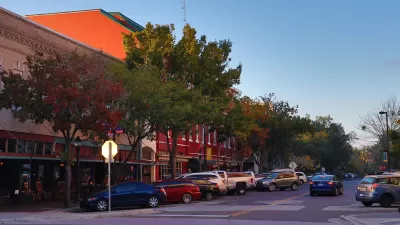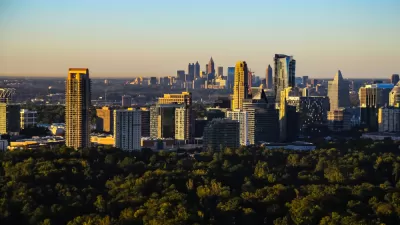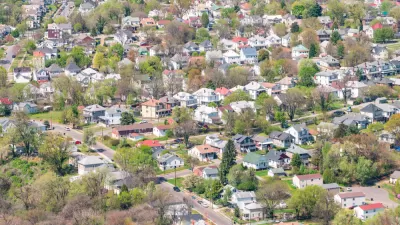A see-saw battle over land use and housing policy continues in the city of Gainesville.

Gainesville, Florida is in the final stages of planning and discussion on an ordinance that would implement mandatory inclusionary zoning in the city.
“The outline [of the proposed ordinance] presented to the plan board in June would require 10% affordable units for all developments with 10 or more units,” reports Seth Johnson for Main Street Daily News. “So, a developer proposing a 200-unit complex would set 20 units aside as affordable. The city could compensate by then allowing the developer to build extra units, taking the development above 200 units.” Gainesville has approved developments with inclusionary zoning already, but only on a voluntary basis, adds Johnson.
The debate is occurring just a few months after reversing a decision to replace the city’s single-family zoning with “neighborhood residential zoning.” The zoning change would have allowed more multi-family residential buildings in the city.
The same study that produced that previous effort at zoning reforms is also responsible for the current inclusionary zoning proposal, according to the article, “The City Commission hired a firm to conduct a housing study that finished at the end of 2021. That study looked at both inclusionary and exclusionary zoning, directly leading to last year’s vote to end single-family zoning. With that decision reversed, the city can set its sights on inclusionary zoning and other housing changes,” writes Johnson.
The report, completed by HR&A Advisors, is available to read online.
FULL STORY: Gainesville considers inclusionary zoning

Planetizen Federal Action Tracker
A weekly monitor of how Trump’s orders and actions are impacting planners and planning in America.

Congressman Proposes Bill to Rename DC Metro “Trump Train”
The Make Autorail Great Again Act would withhold federal funding to the system until the Washington Metropolitan Area Transit Authority (WMATA), rebrands as the Washington Metropolitan Authority for Greater Access (WMAGA).

The Simple Legislative Tool Transforming Vacant Downtowns
In California, Michigan and Georgia, an easy win is bringing dollars — and delight — back to city centers.

The States Losing Rural Delivery Rooms at an Alarming Pace
In some states, as few as 9% of rural hospitals still deliver babies. As a result, rising pre-term births, no adequate pre-term care and harrowing close calls are a growing reality.

The Small South Asian Republic Going all in on EVs
Thanks to one simple policy change less than five years ago, 65% of new cars in this Himalayan country are now electric.

DC Backpedals on Bike Lane Protection, Swaps Barriers for Paint
Citing aesthetic concerns, the city is removing the concrete barriers and flexposts that once separated Arizona Avenue cyclists from motor vehicles.
Urban Design for Planners 1: Software Tools
This six-course series explores essential urban design concepts using open source software and equips planners with the tools they need to participate fully in the urban design process.
Planning for Universal Design
Learn the tools for implementing Universal Design in planning regulations.
Smith Gee Studio
City of Charlotte
City of Camden Redevelopment Agency
City of Astoria
Transportation Research & Education Center (TREC) at Portland State University
US High Speed Rail Association
City of Camden Redevelopment Agency
Municipality of Princeton (NJ)





























